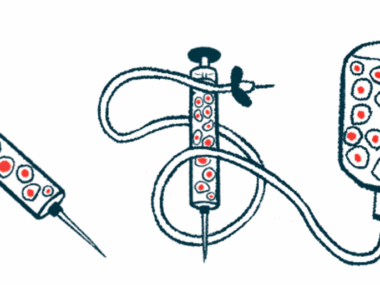New site to manufacture stem cell therapy for Parkinson’s clinical trial
Aspen's certified facility to speed cell lines for patients in ongoing ASPIRO study
Written by |

Aspen Neuroscience has opened a manufacturing facility for ANPD001, its investigational stem cell therapy for Parkinson’s disease being used in an ongoing Phase 1/2a clinical trial.
The 22,000-square-foot facility is an expansion of the company’s headquarters near San Diego, and is reported to include three manufacturing suites certified to meet international standards, quality-controlled laboratories, a warehouse, and offices; an additional 8,000-square-feet space is available for future manufacturing needs.
“This new site will help accelerate the manufacture of patient-specific cell lines for our ASPIRO trial patients in California and across the U.S.,” Damien McDevitt, PhD, president and CEO of Aspen Neuroscience, said in a company press release.
Aspen’s facility adds to existing and certified manufacturing space used to process patient skin biopsies, and laboratory space for research and process development at the company’s Torrey Pines, California, headquarters.
Stem cells in ANPD001 are engineered using a patient’s skin cells
The ASPIRO clinical trial (NCT06344026) is evaluating the safety and tolerability of ANPD001, a cell replacement therapy based on a patient’s own induced pluripotent stem cells (iPSC), in up to nine selected adults with moderate to severe Parkinson’s enrolled at five U.S. sites. iPSCs are a type of stem cell that can become almost any cell type in the body, and the treatment’s goal is to replace nerve cells lost to the disease.
iPSCs are engineered using a patient’s skin cells to become neuronal precursor cells that can replace the dopaminergic neurons — dopamine-producing nerve cells — whose progressive damage and death cause Parkinson’s. These precursor cells, unique to each patient, then are injected during surgery into specific brain regions, where they are intended to mature and produce dopamine over a long term, aiding brain health and easing Parkinson’s motor symptoms.
Aspen recently reported reasonable safety being seen in a first group of three patients one to three months after they were given two sequential escalating doses of the therapy while under general anesthesia.
The new facility also complies with U.S. Food and Drug Administration good manufacturing practices for producing and testing the investigational therapy, and it is certified by a branch of the California Department of Public Health, the company announced.
“Our goal is ‘scaling out, not up.’ We are innovating to produce small quantities of cells specific to the patient, for many patients in parallel,” said Kim Raineri, Aspen’s chief technology officer.
“We continue to advance the entire cell therapy field with this new treatment modality,” McDevitt added.






